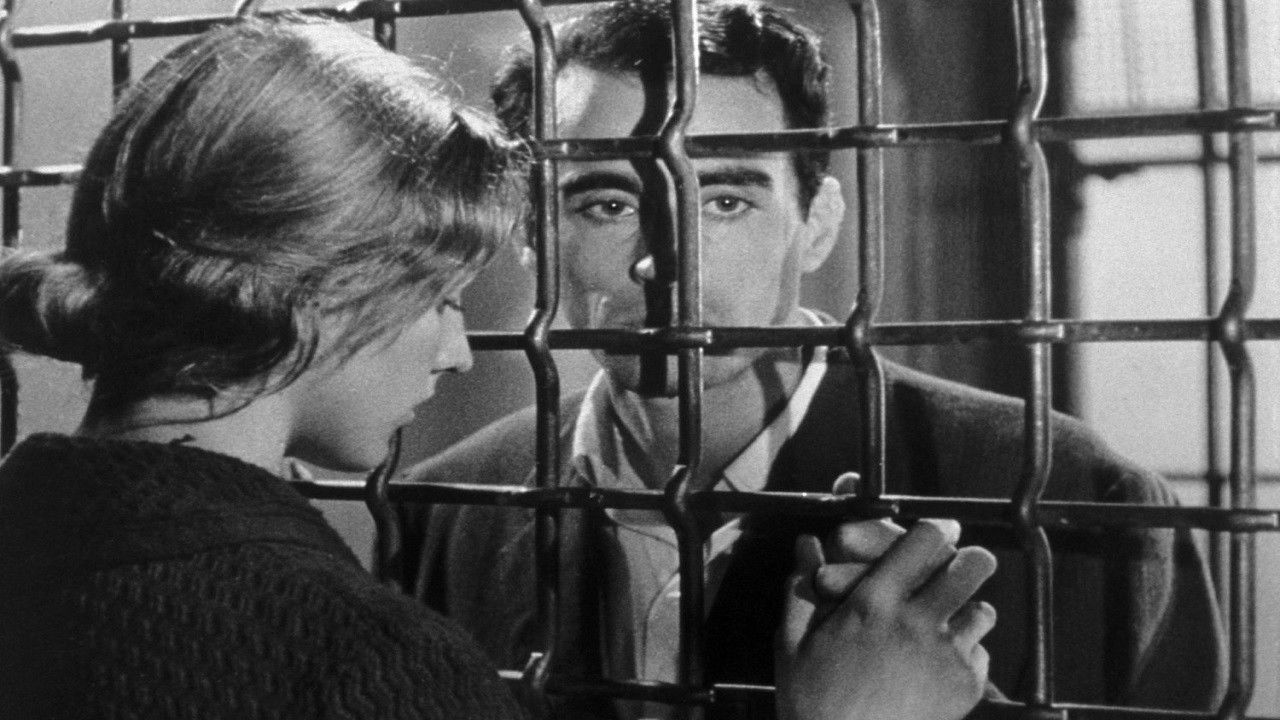

Her neighbor, Jeanne, offers to let him in the apartment, but, instead, he gives her money to give his mother and leaves. The next day, Michel goes to visit his sickly mother, who he has not seen in a month. At the police station, the chief inspector releases him because it cannot be proven that he stole the money. He leaves the track confident he was not noticed, but is suddenly arrested. Michel goes to a race at Longchamp Racecourse and takes some money from a woman's purse. The film is generally considered to be one of Bresson's greatest films. It stars Martin LaSalle, who was a nonprofessional actor at the time, in the title role, and features Marika Green, Pierre Leymarie, and Jean Pélégri in supporting roles. Pickpocket has been paraphrased by other films, such as Leos Carax's The Lovers on the Bridge.Pickpocket is a 1959 French film written and directed by Robert Bresson, the first for which Bresson wrote an original screenplay rather than adapting an existing work. Schrader's admiration for Pickpocket led to his contribution in an extra in The Criterion Collection's DVD release in 2005.
#Pickpocket 1959 driver
In addition, his screenplay for Martin Scorsese's Taxi Driver bears many similarities, including confessional narration and a voyeuristic look at society. Pickpocket exerted a formative influence over the work of Paul Schrader, who has described it as "an unmitigated masterpiece" and "as close to perfect as there can be", and whose films American Gigolo, Patty Hearst, and Light Sleeper all include endings similar to that of Pickpocket. Why does he avoid her? Bresson never supplies motives. Michel does not want to see his mother, but gives Jeanne money for her. She comes to Michel with the news that his mother is dying. Michel, like the hero of Crime and Punishment, has a 'good woman' in his life, who trusts he will be able to redeem himself. The reasoning is immoral, but the characters claim special privileges above and beyond common morality. "Bresson's Michel, like Dostoyevsky's hero Raskolnikov, needs money in order to realize his dreams, and sees no reason why some lackluster ordinary person should not be forced to supply it. Roger Ebert sees echoes of Dostoyevsky's "Crime and Punishment" in this film. Pickpocket is considered an example of "parametric narration" (in which the style "dominates the plot or is seemingly equal in importance to it". Returning to France, Michel goes back to steal at the horse track, where he is caught redhanded by the police. The inspector then just leaves, and Michel decides to leave the country. Later, the inspector visits Michel in his apartment, and tells him that his mother had had some money stolen, but later dropped the charges, probably figuring it was her son who stole the money. Michel's mother dies, and he goes to the funeral with Jeanne. However, the cops failed to find his stash of money. Michel goes back to his apartment realizing that it was all just a ruse to search his apartment. Once there, the inspector barely glances at the book.

While in a bar the inspector asks Michel to show him a book by George Barrington about pickpocketing at the station on a convenient morning, and Michel goes down to the police station with it. But after stealing a watch, Michel leaves Jacques and Jeanne at the carnival. Jacques goes on a date with Jeanne and invites Michel along. Visiting his mother, Michel meets Jeanne (Marika Green) who begs him to visit his mother more often. The inspector (Jean Pélégri) releases Michel because the evidence is not strong enough Michel says it's not a crime to have cash. He leaves the racetrack confident he was not caught when he's suddenly arrested. Michel (Martin Lasalle) goes to a horse race and steals some money from a spectator.


 0 kommentar(er)
0 kommentar(er)
